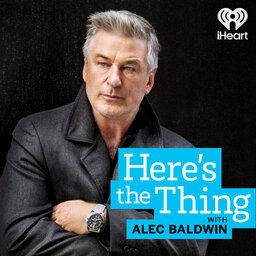Documentary Filmmaker John Scheinfeld: From John Lennon to John Coltrane
Documentary filmmaker John Scheinfeld is a writer, producer and director whose films cover everything from pop culture to politics and sports to religion. His projects dig deep on fascinating topics like Watergate and the Chicago Cubs – as well as an endless roster of talented people like Frank Sinatra, Rosemary Clooney, John Coltrane, Peter Sellers, Bette Midler and John Lennon. His most recent projects include the documentaries “What the Hell Happened to Blood, Sweat and Tears?,” about the classic rock band and their involvement with the U.S. State Department and “Reinventing Elvis: The ‘68 Comeback,” on the television special that revived the King’s career. The Emmy- and Grammy-nominee believes he is lucky enough to have the greatest job, going to “interesting places to talk to interesting people about interesting things.” Host Alec Baldwin speaks with Scheinfeld about how he chooses his projects, how he makes his subjects come alive on film and what it was like working with Yoko Ono.
In 1 playlist(s)
Here's The Thing with Alec Baldwin
Award-winning actor Alec Baldwin takes listeners into the lives of artists, policy makers and perfor…Social links
Follow podcast
Recent clips

The Fearless Robbie Kaplan
42:32

From The Archives: Don Lemon Writes About God
47:11

Chris Whipple is Still Covering the White House
43:43
 Here's The Thing with Alec Baldwin
Here's The Thing with Alec Baldwin